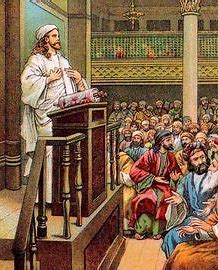In one of the early scenes in Rodgers and Hammerstein’s Carousel, Billy Bigelow sings There’s a hell of a lotta stars in the sky and the sky’s so big the sea looks small; two little people you and I, we don’t count at all. Hammerstein knew as he wrote the lyrics that Billy was wrong; we do count. We do make a difference in the world.
Mark makes the point in his metaphorical reference to the tiny mustard seed. Despite
its size and unremarkable beginning, the plant grows without effort or will.
The sower in the parable doesn't even water or weed the field! The sower just
sows and goes about his business while the earth gives of itself enabling the
plant to grow organically and send out its branches. The kingdom of God like
the mustard seed, grows organically. And inevitably, as day follows night,
God's hidden, mysterious work plays out in the world… and in us. Mark 4:26-34
God is in all things and the seed of His incarnation in the universe is love.
God is Love. Despite man’s efforts, the future of the earth, therefore, lies
not in science and technology, but in the spiritual power of faith and the
power of love. We are born out of love, we exist in love, and we are destined
for eternal love. We are transformed as we continually “reinvent” ourselves
through love. The love of God, as with the tiniest of seeds, grows beyond
anything we can possibly imagine. It grows, roots, invades and becomes all
encompassing.
Our presence in the world matters as we pick up where Jesus left-off centuries
ago. The Christ of the physical
universe, the Christ of all humanity, the Christ of all religions is not a
static figure, like a goal post with an endpoint in mind. We, like the
incarnation of God in us, are constantly evolving, expanding our reach beyond
anything imaginable and invading the Kingdom like the invasive mustard seed.
(Adapted from Richard Rohr’s Daily Meditation, Evolving the Universe, June 8,
2018.)




